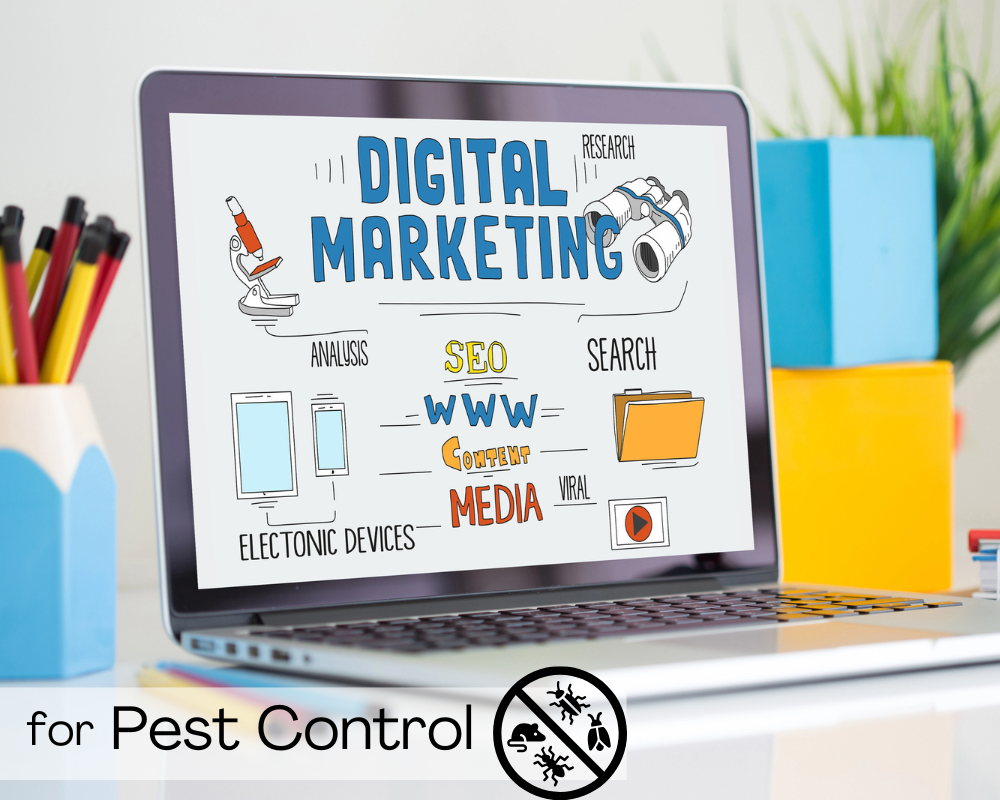The Best Audiobooks for Entrepreneurs

So, full disclosure, I haven’t read a fictional book since 1993 when I ravenously consumed Michael Crichton’s Jurassic Park in the span of 3 days. Since then, I’ve really only been interested in works of nonfiction. Today, I can’t even imagine whittling the weekend away by curling up with a good book. Don’t get me wrong, I love learning, but, as Sweet Brown so famously puts it: “Ain’t nobody got time for that!”
Business owners and entrepreneurs who work 25 hours a day, 8 days a week tend to feel guilty when they spend time reading books. However, whether I like it or not, I do spend a minimum of 30 minutes in the car every day driving around the city. It wasn’t until I decided to take that mundane and mandatory commuting time and turn it into personal teaching and training time that I discovered my love for audiobooks. What could be better than filling your brain with knowledge and wisdom while you’re just sitting there, like a captive audience? Audiobooks are an excellent way for the busy businessman or businesswoman to ingest volumes of excellent information while on-the-go.
I’ve read, ahem, listened to, dozens of great audio books over the years. I particularly like the ones narrated by the actual author, because they usually don’t just lifelessly read the words from a piece of paper, but they know the exact tone and vocal inflections to use to really drive home their points with additional meaning. You can hear their passion in ways that a stack of bound paper simply cannot offer.
So, I thought I’d share some of my favorite business audiobooks with you. Here’s my list of the best audiobooks for entrepreneurs:
The Pumpkin Plan
 Growing your business to an unimaginable size is not all that dissimilar from growing those truck-sized, prize-winning giant pumpkins. Mike Michalowicz teaches entrepreneurs how to make your business massive by taking the one thing you do remarkably well and focus on doing that for your best clients. Let your worst clients become a thorn in your competitor’s side, and stop wasting your time doing services that are costing you valuable time and sanity. This will cause you to stand out as the top player in your own niche, which has one small but very important effect: Customers will pay top dollar because you’re the best.
Growing your business to an unimaginable size is not all that dissimilar from growing those truck-sized, prize-winning giant pumpkins. Mike Michalowicz teaches entrepreneurs how to make your business massive by taking the one thing you do remarkably well and focus on doing that for your best clients. Let your worst clients become a thorn in your competitor’s side, and stop wasting your time doing services that are costing you valuable time and sanity. This will cause you to stand out as the top player in your own niche, which has one small but very important effect: Customers will pay top dollar because you’re the best.
Key takeaway: Identify your fastest growing and most profitable product or service, focus all your time on this “potential giant pumpkin”, then kill off the rest of the pumpkins from the vine so that only one pumpkin remains. Keep nurturing it until it’s mammoth sized.
The E-Myth Revisited
 The “E” in “E-Myth” stands for Entrepreneur. The myth is: You’re probably not an entrepreneur if you’re doing the technical work in the business yourself. Most small business owners think they are “Entrepreneurs” but they’re really just skilled technicians who are trying to be the best at what they do – and would rather work for themselves rather than for some terrible boss. Trying to do the work in the business, while working on growing the business requires two entirely different skillsets. As it turns out, this is a main reason why 90% of small businesses fail. The solution is to stop working in your businesses and start working on your business.
The “E” in “E-Myth” stands for Entrepreneur. The myth is: You’re probably not an entrepreneur if you’re doing the technical work in the business yourself. Most small business owners think they are “Entrepreneurs” but they’re really just skilled technicians who are trying to be the best at what they do – and would rather work for themselves rather than for some terrible boss. Trying to do the work in the business, while working on growing the business requires two entirely different skillsets. As it turns out, this is a main reason why 90% of small businesses fail. The solution is to stop working in your businesses and start working on your business.
Key Takeaway: You need to treat your business like a system, like it is the prototype model for your future franchise empire.
Outliers
 There’s probably no audiobook author who is more fascinating to listen to than Malcolm Gladwell. And out of all of his amazing audiobooks, Outliers is my personal favorite. This book takes a closer look at why most people are concentrated in the center of the bell curve of success, while only an extreme few are on the outer edge of the curve, achieving such monumental levels of success compared to everyone else that it seems like everyone must stop to take notice. These “outliers” include such titans as Steve Jobs, Bill Gates, The Beatles, a village in Italy which has zero heart disease, and professional Canadian Hockey players, among others.
There’s probably no audiobook author who is more fascinating to listen to than Malcolm Gladwell. And out of all of his amazing audiobooks, Outliers is my personal favorite. This book takes a closer look at why most people are concentrated in the center of the bell curve of success, while only an extreme few are on the outer edge of the curve, achieving such monumental levels of success compared to everyone else that it seems like everyone must stop to take notice. These “outliers” include such titans as Steve Jobs, Bill Gates, The Beatles, a village in Italy which has zero heart disease, and professional Canadian Hockey players, among others.
The key takeaway of Outliers, Gladwell explains, is that it takes 10,000 hours of practice to become the best in the world at something, and most outliers owe their success, at least partially, to just being born at the right place and the right time.
Good to Great
 Another fascinating audio-journey is listening to Stanford University Professor Jim Collins who, along with his top research students, studies twenty-eight of the most successful corporations of the 20th Century to discover why most were good, but only eleven of them stood out as truly “great”. What makes them stand out? What he discovered is that the key is having a “Level 5 Leader”, a person who excels with competence, professionalism and ability, but whom also exudes a genuine personal humility completely devoid of ego and self-importance. They humbly lead other people by serving them, building them, and helping them to be great.
Another fascinating audio-journey is listening to Stanford University Professor Jim Collins who, along with his top research students, studies twenty-eight of the most successful corporations of the 20th Century to discover why most were good, but only eleven of them stood out as truly “great”. What makes them stand out? What he discovered is that the key is having a “Level 5 Leader”, a person who excels with competence, professionalism and ability, but whom also exudes a genuine personal humility completely devoid of ego and self-importance. They humbly lead other people by serving them, building them, and helping them to be great.
Key takeaway: People first, then vision and strategy. Great leaders first focus on getting the right people on the bus, then putting them in the right positions, and only then start to develop the vision and strategy (the destination where they are going to drive the bus).
Profit First
 This book is the second Mike Michalowicz book to make this list. It is full of tips on how to run a profitable business, but the main point is all about how to abandon the GAAP accounting method and do things in a way that guarantees profit. After all, isn’t profit the whole point of a for-profit business? Okay, it’s not the whole point, but it sure helps!
This book is the second Mike Michalowicz book to make this list. It is full of tips on how to run a profitable business, but the main point is all about how to abandon the GAAP accounting method and do things in a way that guarantees profit. After all, isn’t profit the whole point of a for-profit business? Okay, it’s not the whole point, but it sure helps!
The key takeaway is that, while most businesses put expenses first and make profit the “leftovers”, this system makes profit first, and expenses get the leftovers. If you really are serious about massive success, you’re going to want to read this book and follow the plan outlined.
Rising Strong
 If you think swagger or perfectionism are the keys to -let’s just use the author’s word – “badassery” – you’re about as dumb as they come – according to author Brene Brown. How do you become the ultimate business “badass”? In a world full of hurting and broken people, the wrong ways are being modeled relentlessly. Fortunately, Brene Brown shows us the way – the right way – which, as it turns out, is evidenced by the data she has been collecting for decades. Human beings are wired for story.
If you think swagger or perfectionism are the keys to -let’s just use the author’s word – “badassery” – you’re about as dumb as they come – according to author Brene Brown. How do you become the ultimate business “badass”? In a world full of hurting and broken people, the wrong ways are being modeled relentlessly. Fortunately, Brene Brown shows us the way – the right way – which, as it turns out, is evidenced by the data she has been collecting for decades. Human beings are wired for story.
Key Takeaway: Emotional Intelligence is essential in building a culture of vulnerability, courage, and authenticity.Then, integrity is the key to making it last. There’s no point in building the most successful version of your life/business/legacy if, when all is said and done, you’ve left a trail of corpses in your wake – the lives you trampled on to make it to the top, and now there is no one left to share it with but the empty shell of a person you’ve become by neglecting what matters most.
Start With Why
 Simon Sinek convinces listeners that he is American until he says the word “buh-naw-nuh”. Also, he brings a bit of a twist to the Good to Great philosophy by making a strong case that starting with “why” is more important than “how” and “what”. First, identify why your are doing something, habitually, and make it into a part of your normal thought process, then that will help your “how” and “what” take shape.
Simon Sinek convinces listeners that he is American until he says the word “buh-naw-nuh”. Also, he brings a bit of a twist to the Good to Great philosophy by making a strong case that starting with “why” is more important than “how” and “what”. First, identify why your are doing something, habitually, and make it into a part of your normal thought process, then that will help your “how” and “what” take shape.
Key Takeaway: Great leaders first focus on a sense of purpose (or “Why), followed by strategy (or “How”) and vision (or “what”).
Honorable Mentions:
Built to Sell
 This book takes the story of a fictional character who is selling his Advertising Agency, and uses it to teach business owners how to become entrepreneurs. The tips are invaluable, and the format of the fictional story makes it a nice break from other entrepreneurial themed audiobooks. While this book is not narrated by the author – and, fair warning, the narrator has some highly distracting vocal tics, you do get used to them after awhile and it’s worth listening all the way through.
This book takes the story of a fictional character who is selling his Advertising Agency, and uses it to teach business owners how to become entrepreneurs. The tips are invaluable, and the format of the fictional story makes it a nice break from other entrepreneurial themed audiobooks. While this book is not narrated by the author – and, fair warning, the narrator has some highly distracting vocal tics, you do get used to them after awhile and it’s worth listening all the way through.
Key Takeaway: By going through the steps required to make your business sellable, you’ll automatically make it into a healthy, growing, and extremely profitable cash generating machine.
Double Double
 This book teaches you how to double the size of your company in three years. Cameron Herold goes into depth about creating a vision, building a world class culture, and preparing for fast growth.
This book teaches you how to double the size of your company in three years. Cameron Herold goes into depth about creating a vision, building a world class culture, and preparing for fast growth.
Key Takeaway: Lean forward three years into the future, write down everything you see about your company. Then, reverse engineer this “vision”, breaking it down into actionable steps and milestones. Your job now is to work on making this happen.
The Lean Startup
 You’ll never know how to innovate unless you are asking your best customers what they want.
You’ll never know how to innovate unless you are asking your best customers what they want.
Key Takeaway: Focus on serving your early adopters. Test everything in small batches so you know exactly what works and what doesn’t.
EntreLeadership
 This one is good for new entrepreneurs and full of wisdom from Finance guru Dave Ramsey.
This one is good for new entrepreneurs and full of wisdom from Finance guru Dave Ramsey.
The key takeaway is to develop a culture that attracts and keeps entrepreneurial minded leaders on your team. Stay far away from “employees” and onboard “entreleaders” instead, your bottom line will greatly benefit.







